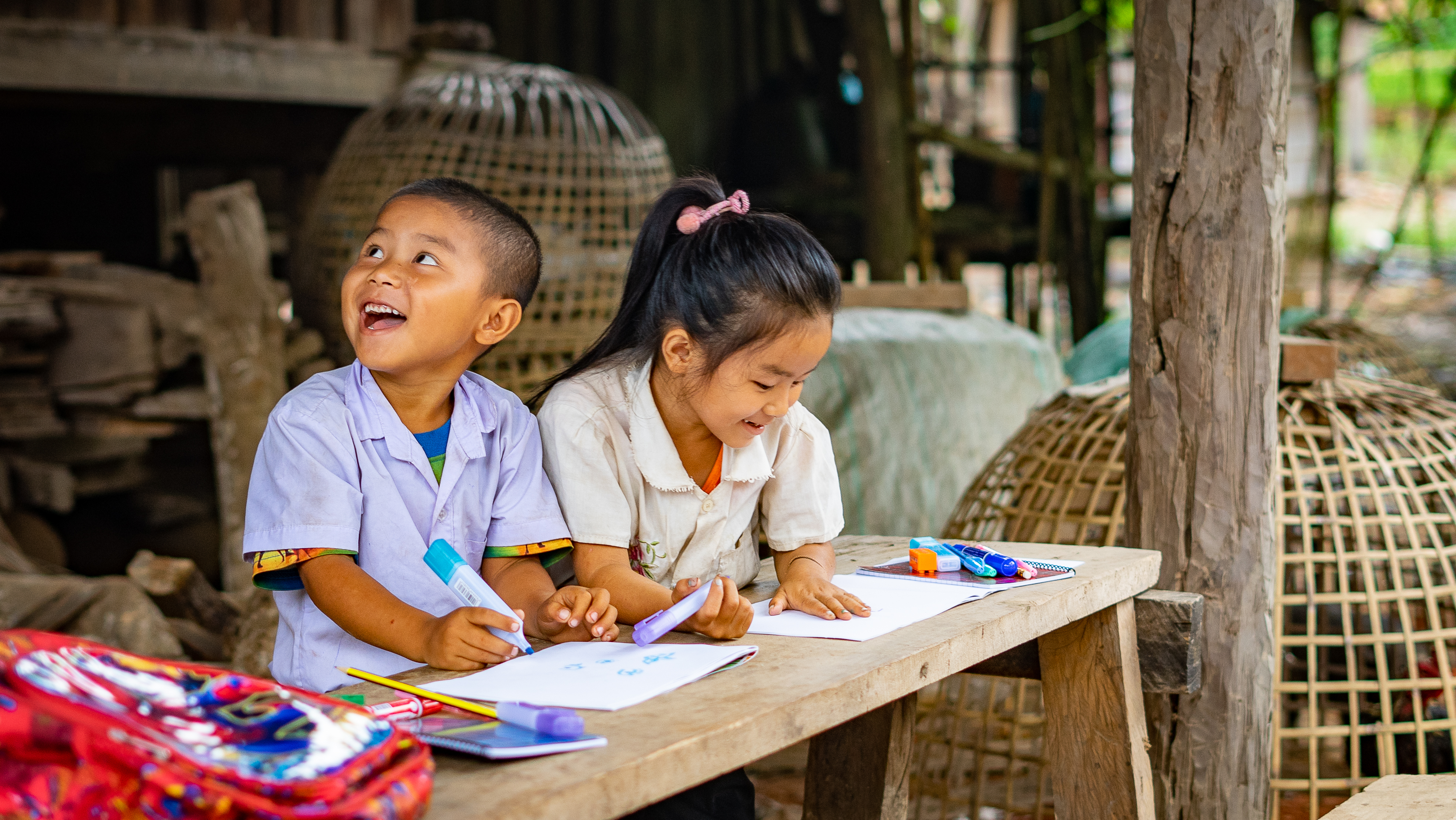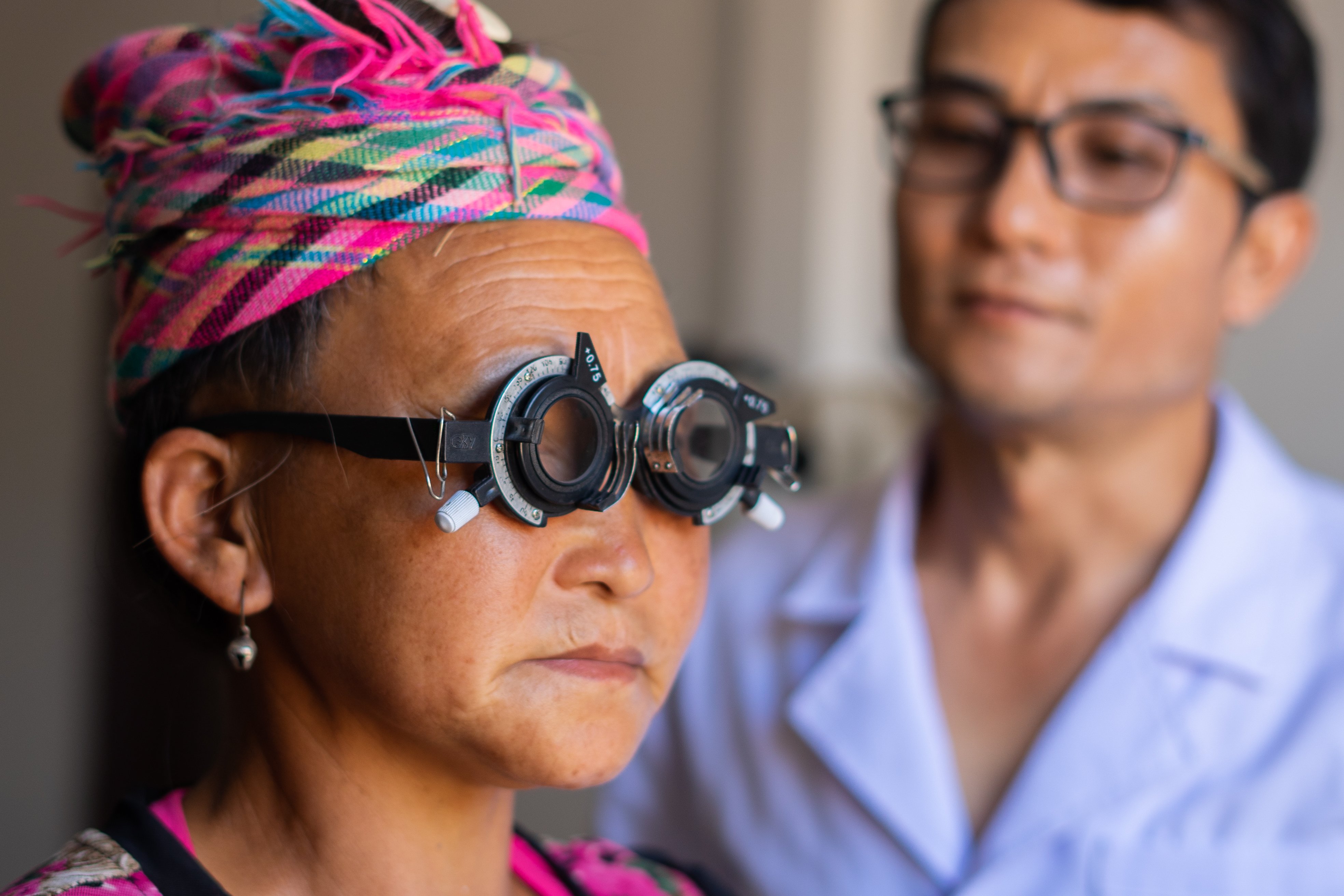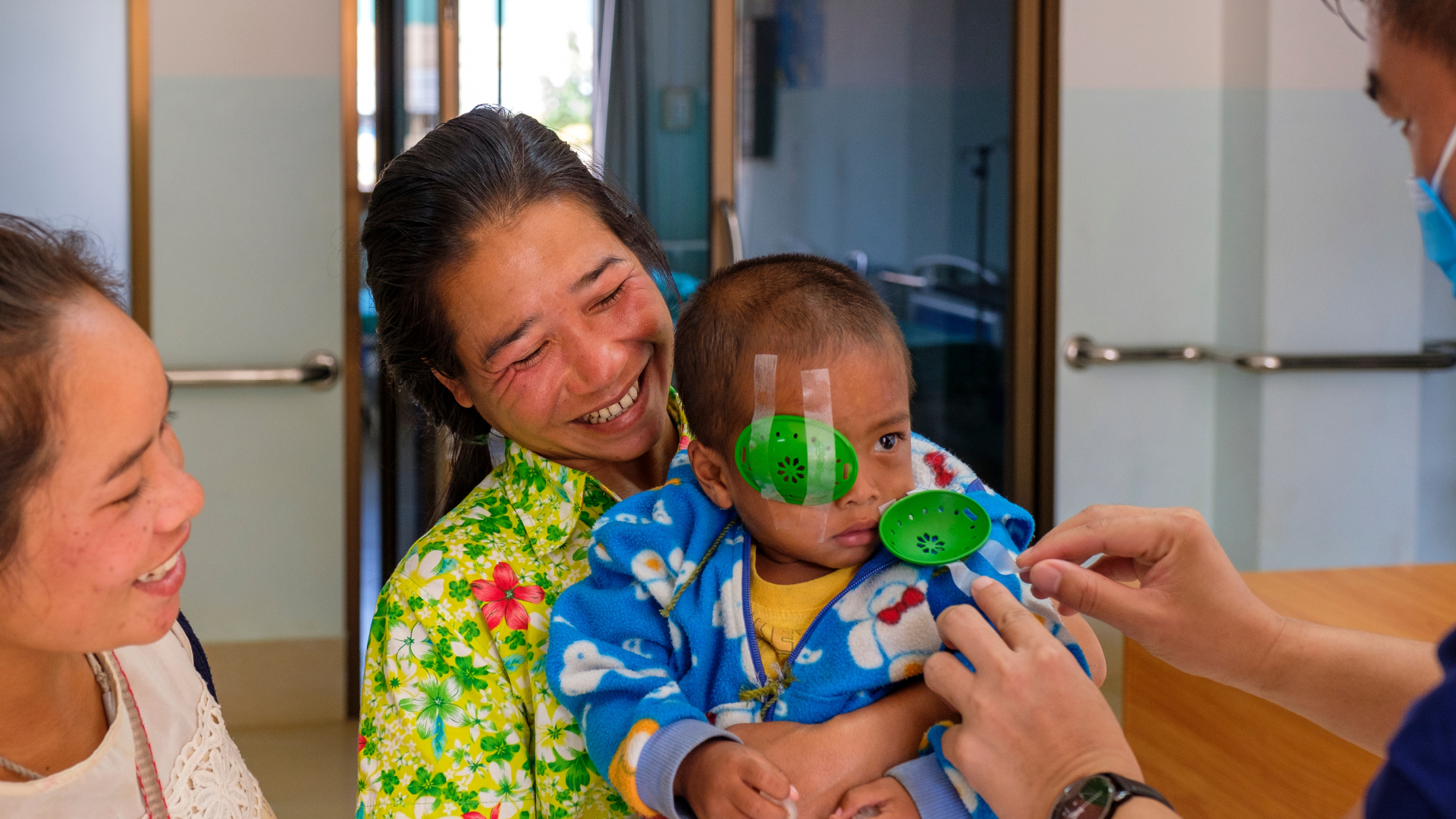Our work in Lao PDR
In Lao People’s Democratic Republic (PDR), the main causes of blindness and visual impairment are untreated cataract (75% of cases), uncorrected refractive error (7.4%), and other diseases such as pterygium, posterior segment disease and cataract surgical complications. Of these conditions, 87-97% of the cases are treatable and avoidable.
The Fred Hollows Foundation in Lao PDR receives funding from the Australian government through the Department of Foreign Affairs and Trade (DFAT) and the Australian NGO Cooperation Program (ANCP). Over the past 10 years, this partnership has contributed to the Sustainable Comprehensive Eye Care Program (SCEC) in Lao PDR.

Our achievements
True to its mission of creating a world where no one is needlessly blind or vision impaired, The Fred Hollows Foundation in Lao PDR implements the Sustainable Comprehensive Eye Care (SCEC) Project in 10 provinces.
The project has strengthened health systems at the national and provincial levels, ensuring that effective cataract treatment and refractive error prevention are made accessible to all people in the country.
In 2019, thousands had their vision restored through mobile outreach activities:
- 26,741 people had their vision screened
- 4,857 received subsidised cataract treatments
- 5,071 pairs of eyeglasses were distributed
The Foundation supports eye units in provincial hospitals to deliver regular eye services. In 2019, these eye units delivered 33,492 eye screenings and 769 operations. More people were reached through school eye health programs (54,711 students) and World Sight Day activities (5,592 persons).
Through The Foundation supported training programs:
- 17 ophthalmology residents and 41 ophthalmic nurse students graduated.
Advocacy efforts contributed to considerable improvement in eye health workforce distribution.
The results:
- An additional 13 graduate ophthalmologists have been employed by various government and NGO hospitals in 2019, with six employed by provincial hospitals.
Gender equity and disability inclusion:
- Women accounted for more than half (6,987 of 10,560) of people ( who participated in various gender and eye health awareness raising activities. As well, 34 people with a disability participated.
- Women comprised more than half (335 of 614) of people who received eye screening services during World Sight Day, with 35 referred for cataract surgery. As well, 31 people with a disability were screened with two accessing cataract surgery.
In collaboration with the National University of Health Science (UHS) The Foundation is strengthening the Lao PDR’s eye health workforce through training programs for ophthalmologists, ophthalmic nurses, and village health workers.
The Foundation maintains a good relationship with funding partners such as the Australian Government, and Luxembourg Development (Lux Dev), development agencies such as the World Health Organization (WHO), Eye Care Foundation (ECF), and CBM.
The Foundation has also worked with government partners such as the National Ophthalmology Centre (NOC), and the Ministry of Health (MOH). The Foundation has also worked in close collaboration with the Ministry of Foreigner Affairs (MOFA) and the National Lao Women Union (LWU).

In 2024, The Foundation and its partners made great progress in key strategic areas in East Asia:
3,165,363
People screened.
137,566
Eye operations and treatments performed including cataract operations, surgeries to treat trachoma, diabetic retinopathy treatments and other sight saving or improving interventions.
86,868
Pairs of glasses distributed.
19,813
People trained including community health workers, surgeons, clinic support staff and teachers.
1,713,566
School children and community members educated in eye health and sanitation.
315
Facilities built, equipped or renovated.
The countries in Asia that The Foundation works in are Lao PDR, China, Vietnam, Cambodia, Philippines and Indonesia.
